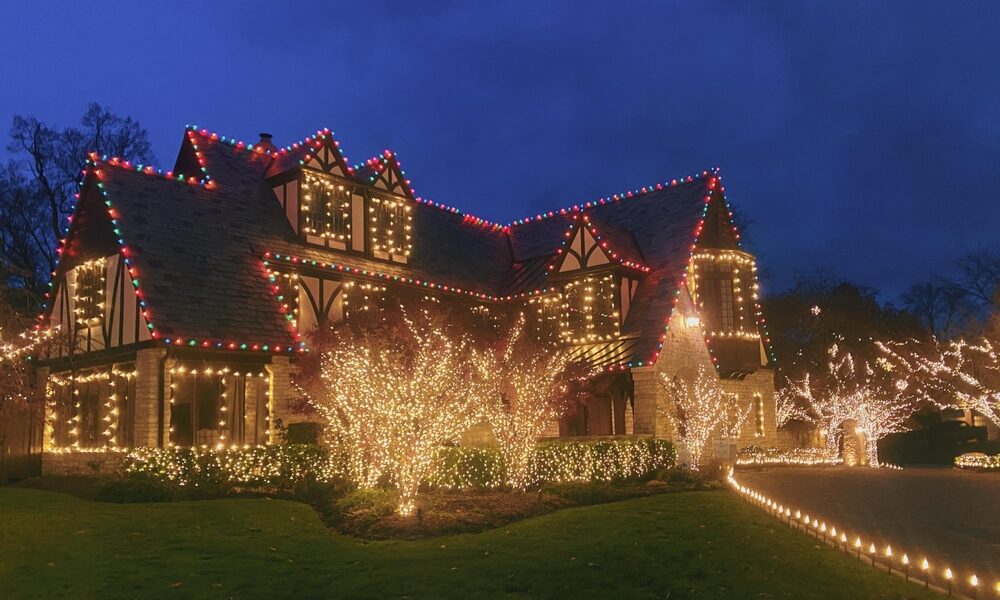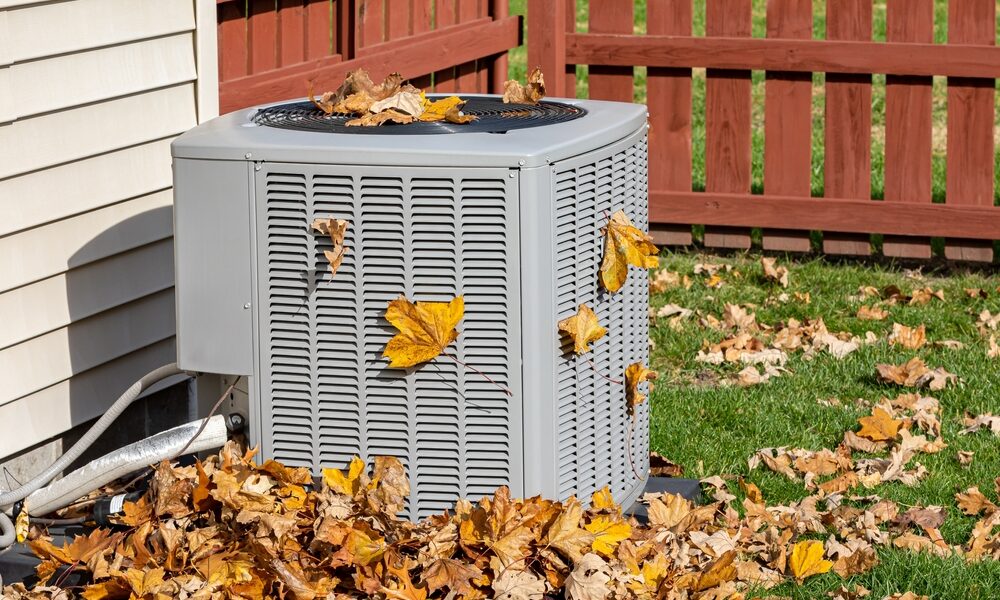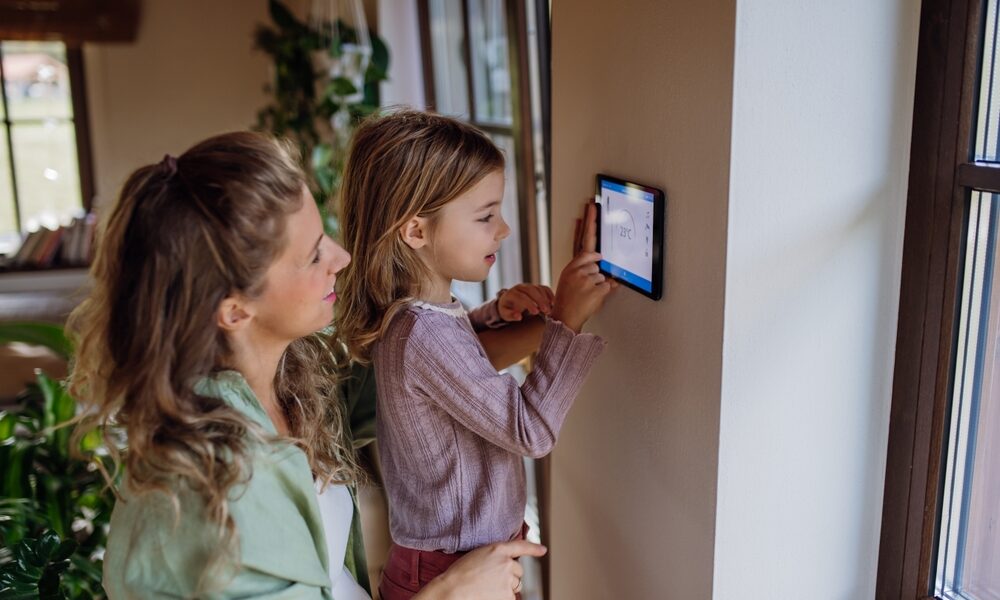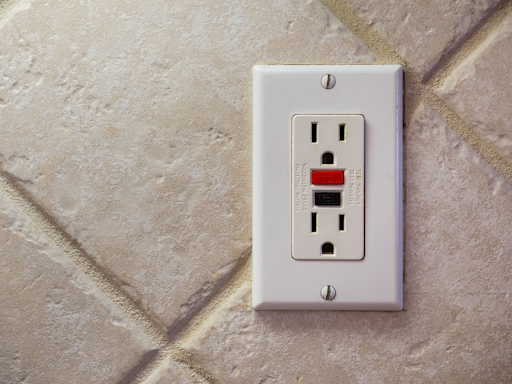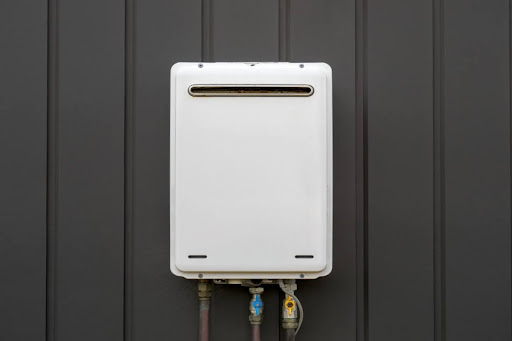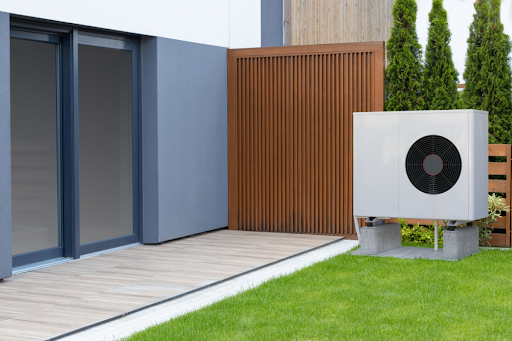Electrical Safety Tips for Holiday Lights and Decorations
It’s time to deck the halls — and to do it safely! While we’re just as excited as the next person to create a winter wonderland, it’s important to keep potential electrical hazards in mind. Even something as simple as a trailing extension cord can become a tripping hazard, and plugging too many lights into a single outlet can cause an electrical fire that brings the whole holiday to an abrupt end. To help you avoid these risks and enjoy a stress-free season, we’ve put together a comprehensive list of electrical safety tips for your holiday lights and decorations.
Tips for Choosing the Right Holiday Lights
Before you hang a single strand, make sure you’re starting with the safest products possible.
Check for Safety Labels
Always choose lights and decorations that have been tested and certified by a recognized safety organization such as UL (Underwriters Laboratories) or ETL. These labels confirm that the product has met essential safety standards and is less likely to malfunction.
Use Indoor and Outdoor Lights Correctly
Indoor lights are not designed to handle weather conditions like rain, snow, and freezing temperatures. Using them outside can lead to electrical shorts or shock hazards.
Likewise, outdoor lights may run hotter and pose risks when used indoors. Always check the packaging to make sure your lights are suitable for where you plan to use them.
Avoid Using Damaged Lights
Frayed wires, cracked bulbs, loose connections, and worn insulation are all signs that your Christmas lights need to be replaced. Never try to repair holiday lights with electrical tape or makeshift fixes, as the risk of sparking or overheating simply isn’t worth it.
Choose LED Lights for Added Efficiency and Safety
Switching to LED holiday lights is one of the simplest ways to enhance both safety and affordability during the season. Because LEDs produce far less heat, they significantly lower the risk of fire hazards. They’re especially ideal for Christmas trees, garlands, and decorations made of artificial or natural greenery.
Additionally, LED lights use up to 80% less electricity than traditional incandescent bulbs. This means you’ll reduce the load on your circuits and keep your energy bill more manageable.
Best Practices for Safely Installing Holiday Lights
Once you know your lights are safe to use, the way you install them can make all the difference.
Don’t Overload Outlets
It’s tempting to plug multiple light strands and decorations into a single outlet, especially if you’re decorating a large space. But overloading a circuit can cause excessive heat buildup, trip breakers, or even start a fire. When in doubt, use multiple outlets on different circuits or consider investing in new outlet installations to add electrical outlets where they are needed most.
Use Heavy-Duty Extension Cords
If you need an extension cord, pick one rated for the intended location. Outdoor extension cords should be weather-resistant and clearly marked for exterior use.
Just remember that extension cords are meant for temporary setups only. You should never run them through walls, under carpets, or across high-traffic areas, and you should not plug multiple power strips or extension cords into each other (known as daisy-chaining).
Secure Cords to Prevent Tripping Hazards
Keep cords close to walls when possible and secure them with cord clips, hooks, or cable protectors. Additionally, make sure walkways are free of clutter to prevent accidental trips and falls, especially when you’re expecting holiday guests.
Use Proper Hanging Tools
Metal nails or staples can pierce the protective coating on light strings and cause shorts. Instead, use plastic hooks, insulated clips, or gutter hangers that are designed specifically for holiday lights.
Tips for Protecting Your Electrical System During the Holidays
Your home’s electrical system works hard during the holidays. A few preventive steps can reduce the risk of outages or costly damage.
Use GFCI Outlets Outdoors
Any exterior lighting or electrically powered decorations should be plugged into ground-fault circuit interrupter (GFCI) outlets. These outlets automatically shut off power when they detect an electrical imbalance to reduce the risk of shocks.
Keep Electrical Components Dry
Snow, rain, and moisture can lead to corrosion or create shock hazards. So, keep outdoor connections off the ground and covered with weather-resistant outlet protectors. Also, make sure your extension cords aren’t sitting in puddles or pinched in doors or windows.
Be Mindful of Heat Sources
Holiday lights, especially older incandescent styles, can generate heat. So, keep them away from curtains, fabric decorations, paper ornaments, and anything else that could catch fire.
Turn Lights Off When You’re Out or Asleep
Never leave your holiday lights on when you leave the house or go to bed. This is when most fires happen, as there’s no one there to notice smoke or flames.
The best solution? Use a timer. You can get indoor or outdoor-rated timers that will automatically turn your wonderland on at dusk and off at bedtime.
Safety Tips for Holiday Decorations Beyond Lights
String lights are not the only potential hazard to your home’s electrical system. Many popular decorations require power, too, and if handled improperly, could lead to life-threatening disasters.
Inflatables and Motorized Displays
Outdoor inflatables should always be staked securely to prevent tipping or dragging across wet grass. Make sure their cords are weather-rated, and don’t leave them running when you’re not home.
Electric Window Candles and Figurines
Check the integrity of cords and avoid placing items with exposed bulbs near fabrics, paper, or holiday greenery.
Keep Your Holidays Bright and Safe
If you’re getting ready to put up holiday lights and electrically powered decorations, it’s important to make sure your home’s electrical system is up to handling them. Our electricians in Harrisburg, PA, can evaluate your system to ensure everything is operating safely and then perform any necessary electrical repairs, wiring updates, and outlet replacements to help your home support all your favorite holiday decorations without putting your family at risk. We can also upgrade your old fuse box to a modern electrical panel or install a whole-home surge protection system for greater peace of mind.
Contact Handyside Plumbing, HVAC & Electrical today and get your home ready for a safe, bright, and joyful holiday season!
5 Reasons Why You Need a Fall HVAC Tune-Up
As the leaves start to turn shades of red and gold and a familiar crispness fills the autumn air, our minds naturally turn to cozy sweaters and warm drinks. But before you reach for the thermostat to ward off that first real chill, it’s crucial to ask: Is your heating system ready for the winter season? Whether you rely on a furnace, heat pump, ductless system, or a boiler to keep your family warm, you could benefit immensely from a professional fall HVAC tune-up.
A comprehensive tune-up involves a detailed inspection of all system components, a thorough cleaning of critical parts, and precise calibration to ensure every element is working in harmony. The end result is improved heater performance and efficiency as well as an extended system lifespan.
If you’re interested in scheduling fall maintenance for your heating system, reach out to the experts at Handyside Plumbing, HVAC & Electrical in Harrisburg, PA. But don’t wait — our schedule fills up fast as the temperatures start to drop!
The Benefits of Fall Heating System Maintenance
Here are five key reasons why a fall HVAC tune-up is a non-negotiable for any homeowner in Pennsylvania and beyond:
1. Improved Energy Efficiency & Lower Utility Bills
One of the most immediate and rewarding benefits of fall maintenance is the positive impact on your wallet. Over the spring and summer, dust and debris can accumulate on internal components, while parts can shift out of alignment. A dirty or poorly calibrated system has to work significantly harder to produce the same amount of heat, forcing it to run longer and consume more energy.
During a professional tune-up, a technician will clean and inspect key components like the blower motor, fan blades, and ignition system. They will also lubricate all moving parts to reduce friction and check that electrical connections are tight and secure. The result? Your heating system uses less fuel or electricity to keep your home comfortable, leading to noticeable savings on your monthly energy bills throughout the winter.
2. Enhanced Safety for Your Home and Family
Your heating system is a powerful piece of equipment, but it is not immune to issues that could make it unsafe. For example, with gas furnaces, a tiny crack in the heat exchanger could leak deadly, odorless carbon monoxide gas into your home. During an inspection and tune-up, a certified technician could spot dangers like this in an instant.
The professional will meticulously inspect the heat exchanger, test all safety controls, and examine the electrical wiring for any frayed or faulty connections that could create a fire hazard. This thorough safety check provides invaluable peace of mind that your system will keep you warm without compromising your family’s well-being.
3. Increased Reliability and Fewer Breakdowns
There is no good time for your heater to break down, but failure on the coldest night of the year is a homeowner’s nightmare. Having to make an emergency repair call is not only inconvenient but also significantly more expensive than investing in planned maintenance. This is, perhaps, one of the biggest reasons discerning homeowners invest in fall HVAC tune-ups. With expert tune-ups taken care of, you have less of a chance of experiencing a major breakdown.
By inspecting the system from top to bottom, a technician can identify worn-out or failing parts (like belts, bearings, or ignitors) and replace them before they give out completely. All winter long, you will be able to rest easy knowing your system is ready to handle whatever the weather throws its way.
4. Better Indoor Air Quality
The air that circulates through your heating system is the same air your family breathes every day. If the system is dirty, it can then circulate dust, pet dander, mold spores, bacteria, and other allergens throughout your home. This is often why some families notice an uptick in allergies and respiratory issues at the start of winter.
The good news is that a key part of a fall heating tune-up is a thorough cleaning of the system’s interior components and the replacement of your air filter. These steps remove built-up pollutants and allow only clean, warm air to be delivered to your living spaces.
5. Extended Equipment Lifespan
As if the above benefits of fall HVAC maintenance weren’t enough to have you picking up the phone and calling your local technician, perhaps this fact will: regular, professional maintenance is the single most effective way to prolong the life of your equipment.
The constant wear and tear of daily operation can take a toll on mechanical parts, and annual tune-ups mitigate this by ensuring the system runs as smoothly as possible so that there’s less strain placed on vital components. By preventing premature failure and keeping your system in peak condition, you can help it reach (and often exceed) its manufacturer-projected lifespan, saving you from the massive expense of an early replacement.
Turn to Handyside for a Fall HVAC Tune-Up
At Handyside Plumbing, HVAC & Electrical, we’ve been providing furnace maintenance, boiler maintenance, and heat pump maintenance to homeowners across the Harrisburg area since 1996. Our certified technicians have the experience and knowledge to service any make or model and will have your system in top condition before the coldest days roll in.
Let us give you the peace of mind that comes with knowing your heater is ready for the winter ahead. Schedule your fall heating maintenance appointment today!
Why You Should Invest in a Smart Thermostat
For many homeowners, the dream of a fully integrated smart home — where lighting, security, and climate control are all seamlessly managed from a smartphone — is a significant goal. However, when looking at the project as a whole, taking the right steps can feel overwhelming and financially impossible. The good news is that you don’t have to do it all at once. One small but powerful step you can take toward achieving a smart home is to invest in a smart thermostat.
This simple upgrade can provide a wide range of benefits, from significant energy savings to enhanced comfort. If you’re trying to decide whether a smart thermostat is the right choice for your home and AC installation, review the compelling benefits in more detail below.
The Benefits of a Smart Thermostat
1. Significant Energy Savings
One of the biggest reasons homeowners switch to a smart thermostat is cost savings. Unlike programmable thermostats that typically heat or cool an empty house for hours, a smart thermostat helps reduce waste by automatically adjusting the temperature when you’re asleep, at work, or away on vacation.
For example, instead of blasting the AC all day while you’re out, your thermostat can ease off and then cool your home right before you return. Over time, these energy-saving adjustments add up to noticeable savings.
Most smart thermostats also provide detailed energy usage reports. This information allows you to see exactly when you’re using the most energy and offers insights on how to reduce consumption even further.
2. Remote Access From Your Smartphone
Have you ever left for vacation and wondered if you forgot to adjust the thermostat? Or maybe you’ve wished you could warm up the house on a cold day before you get home from work. With a smart thermostat, you can monitor and control your home’s thermostat from anywhere in the world using a dedicated app on your smartphone, tablet, or computer. With this remote access, you can make sure your home’s temperature is always just the way you like it.
3. Personalized Comfort Settings
By using smart sensors and advanced algorithms, a smart thermostat can maintain a much more precise and consistent temperature throughout your home. For example, they have the capability to learn your preferences. Over time, they will track your habits and automatically create schedules that suit your lifestyle. For example, if you tend to turn down the heat around 10 p.m., your thermostat can begin doing this on its own.
Some systems even allow you to place remote sensors in different rooms. The thermostat can then heat or cool your home based on the temperature of a specific room, such as a nursery or home office, rather than just the hallway where it’s installed.
4. Proactive Maintenance Alerts
Your HVAC system is one of the most expensive and complex systems in your home, so it only makes sense that you could benefit from having its performance monitored 24/7. Some smart thermostat models allow you to do exactly this. They can send notifications to your phone for things like a clogged air filter that needs changing, an unusual temperature drop that could signal a malfunction, or a system that’s running inefficiently. These early warnings can help you address minor issues proactively, preventing costly emergency repairs and extending the overall lifespan of your heating and air conditioning system.
5. Easy Integration With Home Automation Systems
If you already have smart devices like Amazon Alexa, Google Home, or Apple HomeKit, your new thermostat will fit right in. You can ask your voice assistant to raise or lower the temperature, check current settings, or even run automations that sync your thermostat with other devices.
Smart Thermostat FAQs
Is it really worth getting a smart thermostat?
Absolutely! In fact, for most homeowners, a smart thermostat pays for itself over time through energy savings. When you factor in the added convenience of remote control, improved home comfort, and proactive maintenance alerts that can prevent expensive repairs, the value of this home improvement becomes undeniable.
Are smart thermostats compatible with all HVAC systems?
Most smart thermostats are designed to be compatible with the vast majority of modern heating and cooling systems, including central air conditioners, furnaces, heat pumps, and boilers. However, it’s always best to check the compatibility of a specific model with your system before purchasing.
Can I replace any thermostat with a smart thermostat?
In many cases, yes. However, you must note that some older HVAC systems may require an adapter or professional wiring adjustments to accommodate a smart thermostat. That’s why it’s best to have an AC or heating installation professional evaluate your current setup before making the switch.
Do I need a smart thermostat in every room?
No, you typically only need one smart thermostat to control your entire central heating and cooling system. To address temperature imbalances in different areas, you can add wireless remote sensors.
Do I need Wi-Fi for a smart thermostat to work?
Yes, Wi-Fi is required to take full advantage of remote access and energy tracking. Without internet access, the device will still function as a regular programmable thermostat but won’t deliver the same range of benefits (for example, you won’t be able to control it from your mobile app).
Ready to Make Your Home Smarter? Start With a Smart Thermostat From Handyside!
If you’re interested in a smart thermostat installation, let our expert team at Handyside Plumbing, HVAC & Electrical know. We can help you select the perfect model for your home and HVAC system and then handle the installation from start to finish. We’ll make sure everything is set up correctly so you can start enjoying the benefits of a smart thermostat right away without having to lift a finger.
Contact the Handyside team in Harrisburg, PA, today to schedule your service!
Where Is a GFCI-Protected Outlet Required in Your Home?
You don’t need to be an electrician to know that water and electricity don’t mix. That doesn’t stop the fact that certain areas of your home need to have electrical outlets and water sources nearby, which could cause potential problems if you aren’t careful. That’s where GFCI outlets come into play. These outlets quietly work behind the scenes to keep your home from turning into a fuse-popping, wire-frying, shock-happy hazard zone. When the ampere surges or moisture hits a power line, this little outlet hits the reset button to stop the danger in its tracks. (more…)
What Is a Good SEER Rating for Your Air Conditioner?
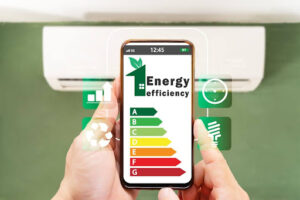
Are you looking to purchase a new air conditioning system but feeling confused about all those SEER numbers? You’re definitely not alone! Many homeowners scratch their heads when trying to figure out what those ratings actually mean for their homes and wallets.
Here at Handyside Plumbing, HVAC & Electrical, we talk with customers every day who want simple, straightforward advice about choosing the right cooling system. So, we’re here to break down SEER ratings so you can confidently pick the perfect air conditioner or heat pump for your specific needs. Plus, we’ll handle the AC installation from start to finish and care for it long afterward with regular AC maintenance and reliable AC repairs.
SEER Ratings Explained
SEER stands for Seasonal Energy Efficiency Ratio. Think of it as your air conditioner’s “miles per gallon” rating. Just like how a car with better MPG uses less gas to travel the same distance, an air conditioning system with a higher SEER rating uses less electricity to cool your home. The SEER rating calculation comes down to simple math: the total cooling output during a typical cooling season divided by the total electrical energy input during that same period.
What Is Considered a Good SEER Rating?
So what counts as “good” when shopping for a new cooling system? Let’s break it down:
13-14 SEER: This represents the bare minimum for new installations. Units in this range will function adequately but won’t offer stellar energy savings. They might make sense for rarely-used spaces or vacation properties.
15-16 SEER: These mid-range units provide a solid balance between upfront cost and operating efficiency. Many homeowners find this sweet spot satisfies their needs without breaking the bank.
17-18 SEER: Now we’re talking about genuinely energy-efficient models that deliver noticeable utility savings, especially in warmer climates. These units cost more initially but reward you with lower monthly bills.
19+ SEER: Premium efficiency territory! Air conditioners and heat pumps with these high SEER ratings represent top-tier technology. They minimize energy consumption and often include advanced features like variable-speed operation.
Most homes benefit most from units in the 15-18 SEER range. However, your specific circumstances might push you toward either end of the spectrum. Let’s examine the factors that should influence your decision.
Factors That Influence the Ideal SEER Rating for Your Home
Several factors determine the best SEER rating for a home. Personal cooling habits, house size, insulation, and regional climate all play a role in choosing an ideal system.
Climate Considerations
Here in Central Pennsylvania, we experience quite a mix of weather conditions that influence air conditioner choices for Harrisburg homeowners. Our hot, humid summers—with July temperatures regularly climbing into the 80s and 90s—demand reliable cooling power for about 4-5 months each year. Unlike southern states that need air conditioning almost year-round, or Pacific Northwest homes that barely use their units, our specific seasonal pattern hits a sweet spot where SEER ratings matter significantly without requiring the absolute highest efficiency models.
Home Size and Insulation
Your home’s physical characteristics affect how hard your cooling system must work. Larger homes naturally require more cooling power. But insulation quality matters just as much as square footage. A well-insulated home retains cooled air much better, reducing how often your system cycles on. This means even a moderate SEER rating unit can perform effectively. Meanwhile, a poorly insulated home might benefit from a higher SEER rating to offset the extra work required to maintain comfortable temperatures. The orientation of your home matters, too. Houses with large west-facing windows typically experience greater heat gain in afternoons, potentially making a higher SEER rating worthwhile.
Usage Patterns
How you use your home affects your ideal SEER level. Do you work outside the home during weekdays? Do you frequently entertain large groups? Do certain family members require specific temperature settings for health reasons?
Families who spend most daylight hours at work or school might benefit less from ultra-high-efficiency units since the system runs fewer hours. Meanwhile, households with members home throughout the day (remote workers, retirees, stay-at-home parents) typically see greater returns from investing in higher SEER ratings.
Smart thermostats can enhance any system’s efficiency, but they pair particularly well with higher SEER units to maximize your savings potential.
Budget and Upfront Costs
Higher-rated systems often come with higher price tags. While a higher SEER rating can lower energy costs, the initial investment needs to make sense financially. Homeowners planning to stay in their homes long-term may find that a more efficient unit pays off over time. Those planning to move soon might prioritize affordability over maximum savings.
How Handyside Can Help You Choose the Right SEER Rating
Selecting the perfect SEER rating involves balancing multiple factors specific to your situation. Our experienced Handyside technicians take a consultative approach rather than pushing everyone toward the most expensive option.
When you contact us for guidance, we’ll:
- Evaluate your existing system’s performance and efficiency
- Conduct a thorough assessment of your home’s layout, insulation quality, and ductwork
- Discuss your comfort preferences, usage patterns, and budget constraints
- Calculate potential energy savings across different SEER options
- Explain available financing options and applicable rebates
- Present clear recommendations tailored to your specific needs
Many customers tell us they appreciate our educational approach—we want you to understand exactly what you’re investing in and why it makes sense for your home.
Upgrading Your AC? Call Handyside for Guidance & Installation
Choosing the right seasonal energy efficiency ratio feels overwhelming, but it doesn’t have to be. The perfect cooling system balances efficiency, performance, and value in ways unique to your home and lifestyle. Ready to explore your options? The Handyside team brings decades of combined experience helping homeowners select and install the ideal central air conditioner or heat pump systems. Give us a call today!
Why You Should Consider a Tankless Water Heater for Energy Efficiency
Hot water plays a crucial role in everyday life. Showers, laundry, dishwashing—every task depends on a reliable and efficient system. Traditional tank water heaters have been the standard for decades, but technology has introduced a better alternative. Upgrading to a tankless water heater provides significant benefits, especially in terms of energy efficiency. (more…)
5 Reasons to Consider a Heat Pump for Your Home
A heat pump represents a year-round solution designed to improve comfort and efficiency in your house that you never thought possible. A heat pump system works tirelessly to maintain the perfect indoor temperature throughout the year. Heat pumps offer a practical option for homeowners seeking to save money, reduce utility bills, and achieve reliable heating and cooling by harnessing energy from the outside air or the ground. For homeowners looking to make the switch from traditional HVAC systems, installing a heat pump might be the alternative you need. Here are five reasons to consider a heat pump system for your home. (more…)
What to Do If You Smell Gas in Your Home
Natural gas keeps our homes warm and comfortable but detecting a natural gas leak requires immediate action. Many homeowners feel uncertain about the proper steps when they smell gas inside their homes. Handyside is here to change that. As a top HVAC, plumbing, drain, and electrical services company in Harrisburg, PA, we’re committed to educating our community about home safety. That’s why we’re here to explain the important actions you should take if you suspect a gas leak in your home. These essential safety measures, along with our professional gas line repair and replacement solutions, could save your life. (more…)
